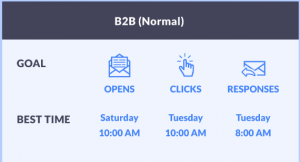Employee Engagement Survey statistics tell us that 72 percent of employees feel they receive adequate recognition, and approximately 65 percent of employees tell us they are fairly compensated. Those same statistics tell us the percentage of engaged employees is still hovering around 30 percent of the workforce.
Many factors are at play in the employee engagement equation. One of the most significant factors determining whether an employee finds it easy to be engaged under your leadership is whether or not you recognize the huge difference between rewards, recognition, and appreciation.
Rewards
This may sound blunt, but employee rewards are prizes. A salary increase or bonus is one form of a prize. Winning a contest for an all-expense-paid trip for two to Tahiti is a prize. Receiving a gift for being a top-performer is a prize.
Rewards for outstanding performance are great. But, relying on rewards alone means the other 95 percent of your employees who keep your operation running daily are not rewarded for their contributions. There’s usually one ‘winner’ and many ‘losers.’
It’s important to remember that the great feeling that comes with every reward, even a salary increase, is incredibly short-lived. Rewards also do not work for all team members. You personally may be motivated by the rewards of money. But I know many people, my wife included, who are actually de-motivated by money. I’ll never forget a credit union I consulted with who awarded a $ 10,000 bonus to the Manager of the Quarter. I don’t know about you, but a $ 10,000 bonus would personally be motivating to me. As I was talking to the manager who won the award that quarter, however, she told me, “I should be ecstatic about being selected, but this is such a kiss-a** award that in some ways it’s almost a de-motivator.” I tried to convince her to endorse the back of the check over to me, but she wasn’t quite that demotivated.
Recognition
Almost always, recognition is focused on acknowledging an individual’s or team’s great project, sale, success or results. A fair leader provides more recognition and, when appropriate, rewards those who meet or exceed the goals. But, if there are no great results (for instance during tough business circumstances out of the employees’ control), there is no recognition of success.
Appreciation
Webster’s Dictionary defines appreciation as a feeling of being grateful for someone or something. To genuinely appreciate someone, you need to think about the person and what contributions and uniqueness they specifically contribute to your or your team’s success.
Almost always, the expression of appreciation results from a one-on-one interaction with the leader. The leader sends an email, writes a note or, better yet, tells the team member in person. They genuinely express why they are grateful to have the individual on their team and what specific and unique contribution makes them so special.
The feeling of receiving rewards or recognition pales in comparison to the power of feeling appreciated by someone important to you. Personally, one of my favorite things to say to the important people in my life is, “I’m so blessed to have you be a part of my life/our team because….” I then provide specific the specific validation. Many managers have brief thoughts of the people on their team and why they are grateful for them. But, feeling gratitude and not expressing it is like wrapping a present and not giving it. Great leaders take the time and effort to express their gratitude to their team members.
Balance is the key.
To be a fair leader, you need to ensure that rewards and recognition are commensurate with the individual’s or team’s performance. But to ensure that you have your entire team fully engaged, you have to practice daily the art of being grateful for the people in your life and making sure they feel the high level of appreciation you have for them.
Right about now, someone is probably asking, “Peter, what if you have a team member who is a pain in the a**, who you truly don’t value or appreciate and wish they would just quit to go torment one of your competitors?” Well, I have bad news for you; this is a leadership issue. As a leader, you should be coaching and counseling the deviant team member. If that doesn’t work, with the assistance of human resources, you should be helping this individual find their next job at your best competitor.
Here are 7 tips to help you be the leader who makes each member of your team feels appreciated.
Understand the difference between rewards, recognition and appreciation. To be a great leader, you need to use the right combination of all three methods, and use the right method, for the right person, at the right time.
Practice gratitude. Every day, think about the people who make a difference in your life. Whether it is your significant other, your children, your friend, your boss, your direct reports, your team members, or someone serving or helping you, great leaders are grateful and express their appreciation to others.
Provide timely feedback. If you are like me, you often think about how you appreciate others in your life. If you are also like me, there are many times you think the thought but before you have the chance to tell the person, your mind is off thinking about something else. When you think about being grateful for the role someone plays in your life, tell them. If you don’t, chances are you never will.
Be specific. When it comes to appreciation, the more specific you can be the better. Telling someone they are a great person is a wonderful thing. Telling them you really appreciate how kind they are to everyone they encounter and that they are your role model when it comes to kindness is even better.
Give people your time. One of the greatest ways to show people you appreciate and value them is to give them your time. Make time on your calendar every week to check in with each of your direct reports to find out how you can support them. In your personal life, make time each week to both talk to and do things with your significant other, friends and children.
Write a card or note. In this world of electronic communication, a hand-written card or note really stands out. When you take the time to find a card, write a note and find a stamp to mail it, you are telling someone, “I was thinking about you and I really appreciate you.”
Make appreciation a habit. When I taught leadership at San Diego State University, one of my homework assignments for my students was to appreciate 10 people a day for 7 days. Many students found this assignment difficult. I remember one student coming up to me after class and telling me, “I only have two direct reports. Do I appreciate each one 5 times a day?” This assignment was hard on him. If you focus on feeling grateful, you’ll find it easy to appreciate 10 people every day. The more you do it, the more it will become a habit. The benefit for you as a leader is that people love to be around and follow grateful and appreciative leaders.
You can pay employees well, dole out bonuses, provide great benefits, and still have disengaged employees. If you do not feel valued and appreciated for your contributions to the team and organization, it is incredibly difficult to be fully engaged and committed to your role. As a leader, it is your responsibility to find the appropriate balance of rewarding, recognizing, and appreciating your team members. Are you utilizing the right combination in your leadership role?
Business & Finance Articles on Business 2 Community(76)





